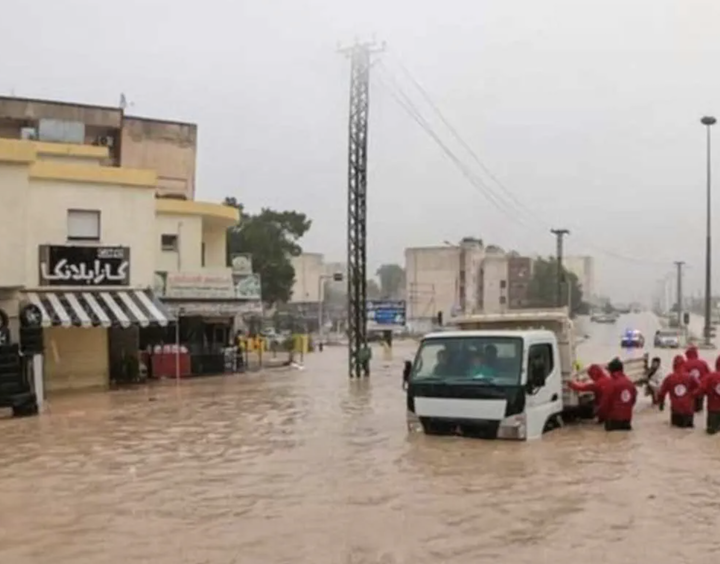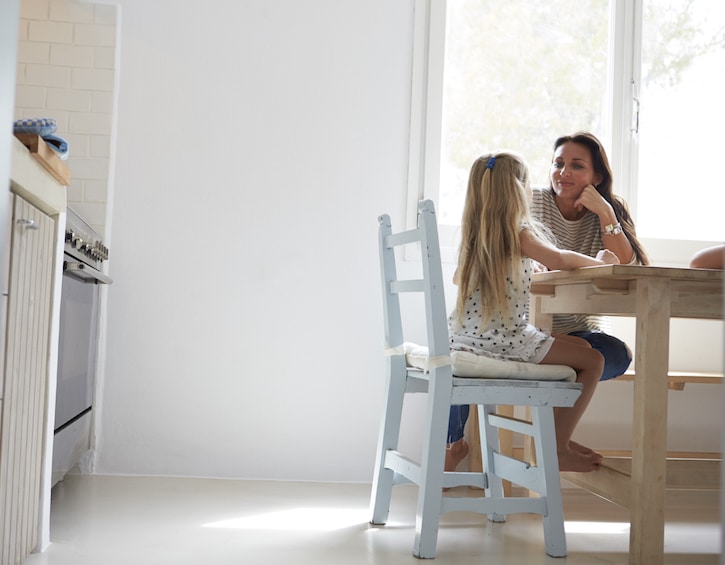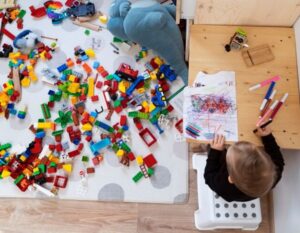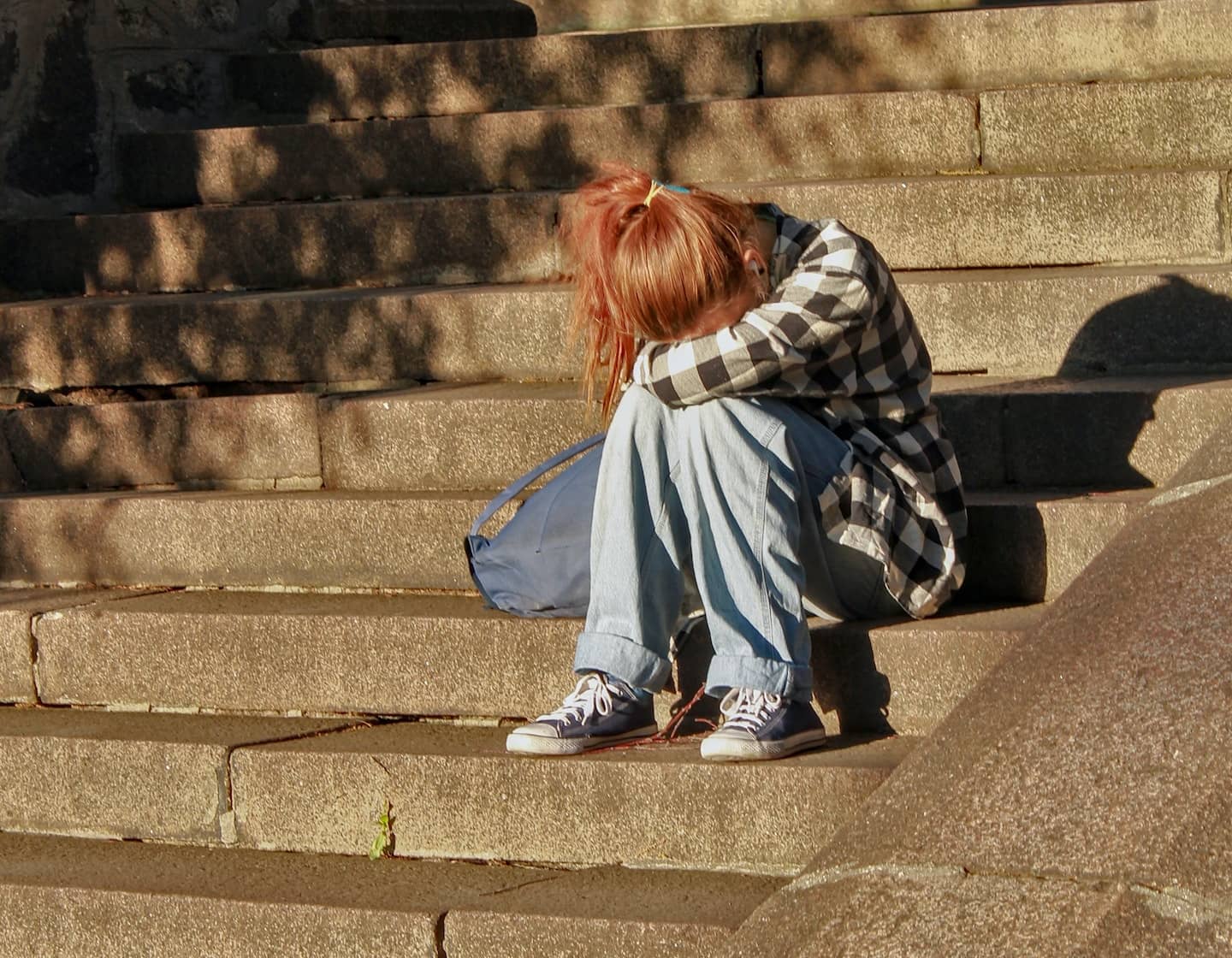
 Post Category - ParentingParenting - Post Category - Toddler & PreschoolerToddler & Preschooler - Post Category - Older KidsOlder Kids
Post Category - ParentingParenting - Post Category - Toddler & PreschoolerToddler & Preschooler - Post Category - Older KidsOlder KidsDoes your child have questions about the disasters in Morocco and Libya? Counsellors share tips on how to talk to kids about scary news in a reassuring and age-appropriate manner
The scary news cycle these days seems to be on overdrive: the most recent tragic news being that of the devastating floods in Libya and the earthquake in Morocco. Then there’s the ongoing war in Ukraine and other distressing news that flashes across our screens on the daily. While all experts agree it’s best to talk to your kids about scary news rather than shield them, it’s crucial to do so in a manner that is both age-appropriate and ultimately reassuring. We talked to counsellors at preschools and international schools in Singapore to get their age-appropriate advice on how to talk to kids about scary news. If you need extra help talking to your child or think they may be struggling with their mental health – here’s our list of counsellors who may be able to help.
Read More: How to Talk to Kids About War in an Age-appropriate Way
For Preschooler Kids:
1. Speak openly and honestly, and don’t hide the truth
When a tragedy occurs, it’s only natural that children may be confused or frightened. It’s important to share relevant and age-appropriate information so that they can understand and maintain a sense of safety and security, say Dr. Hana Ra Adams and Jennifer Maerz, who are school counsellors at GESS: “Start by telling your child the truth. Don’t pretend that the event has not occurred or that it is not serious. Children will be more worried if they think you are too afraid to tell them what is happening.
“Children take their emotional cues from the significant adults in their lives, so try to avoid appearing anxious or frightened. Reinforce that your child and your family are safe. Point out factors that help ensure their immediate safety such as the fact that wildfires rarely happen in Singapore so they themselves are safe.
A good first step, says Head of School Sarah Woon of Blue House Nursery & International Preschool, is to ascertain what your child might already have heard about the topic at hand, and to work on clarifying misinformed or sensationalised details to ensure that your child has access to age-appropriate facts.
Read more: 17 Recommended Children’s Books to Understand and Manage Big Feelings
2. Open communication is key
“Let your children know it is okay to feel upset,” say the counsellors from GESS. “Encourage them to talk about their feelings so that you can help put them into perspective. Many children do not express their concerns verbally, so keep a lookout for changes in behaviour, appetite, and sleep patterns. There is no right or wrong way to feel or express grief.”
“We believe that children are capable, confident communicators who can handle very complex problems that face humanity. We should not protect them from information and talk to them as if they are not as intelligent as adults,” says Tina-Stephenson-Chin, Director of Pedagogy at EtonHouse, which takes a child-centered, Reggio-Emilia approach.
Parents should be sure to “respect the fact that children can understand, but do not make it a monologue or mini-lecture. Instead, acknowledge their questions, ask for their perspectives and keep the dialogue going back and forth.”

3. Filter the info for your child
“Filtering through the information that your young preschooler has been presented with is an important process to ensure that the child’s impression of the situation does not become disproportionate to the facts,” says Sarah Woon from Blue House, where educators handle such discussions with sensitivity and work with parents to keep the narrative consistent and at a level that young children can cope with.
Filtering can include shielding your child from graphic images and disturbing media that presents tragic scenarios, she explains. After all, violent and gory images or sounds could lead to fear, instead of awareness. Very young children need to feel safe and know that discussions about a situation that’s given great attention does not compromise their sense of safety. In that respect, having the news on in the house in the background where your child can see it before you have had a chance to filter it does not allow you the time to decide what’s suitable for them and may do more harm than good.
4. Remind children how safe Singapore is and how safe they are
Clare Lancaster, Educational Psychologist at Tanglin Trust School, has further helpful tips for helping parents put young children’s worried minds at ease: “It’s important to remind children that they are safe and that adults are there to look after and protect them. They need to be reminded that most times, things go well and that when they don’t, there are lots of things that adults do to make things safer and better to help everyone who has been affected. It’s important to be factual, but not give too much information. Your child may have lots of “what if” questions e.g. “What if there are wildfires in Singapore?”, “What if there is a war here?”. “What if our plane crashes?” Answer these with a focus on safety, and some “What if it’s all ok?” questions of your own.
For example, “Even if a plane’s engine stops working, the pilots are very skilled and can land the plane safely by gliding it down. They know how to keep us safe. Here’s a question for you…what if the plane flies us there safely and comfortably and we have a lovely start to our holiday?”
Finally, suggests Tina Stephenson-Chin from EtonHouse, parents should try to “share information neutrally without being too dramatic, taking time to explain any new vocabulary to your child.” In fact you can even do research and read the news together, all the while encouraging your child to write down or verbalise their questions, findings and ideas.
For Primary & Middle School Kids:
5. Discuss the realistically (low) chances of disaster in most cases
The counsellors from GESS stress that at this age, it’s crucial that parents help separate reality from fantasy (and media sensationalism), and provide clear answers to questions, while continuing to provide reassurance.
Says Clare Lancaster, from Tanglin: “It can be helpful to start talking about how we hear a lot of news about fires, crashes, crises and disasters, but that is precisely because they are unusual, and that normally, everyone is safe from harm. It can be helpful to think about the things we do to stay safe – fire/lockdown drills, washing hands and temperature checks for illnesses etc – and remind your child that adults will always do their utmost to prevent any harm happening to them, or to help make things better.
For example, “We might hear a lot of news about a helicopter crash, but it is still generally considered to be safer than driving. It’s only being talked about a lot because it is so unusual and there’s a lot of focus on investigations which help make any flying safer.”

For Older Kids and Teens
6. Remind kids about the big picture
Clare Lancaster suggests that thinking about the broader picture can be helpful. For instance, hundreds of thousands of people lived within the “danger zone” of the Taal Volcano eruption in the Philippines, but only tens of thousands had to evacuate, and although still tragic, only four people died (and it was unclear if this was as a direct result of the volcano); the risk to life was therefore minimal. Acknowledging that risk of bad things happening is real and present in our lives is important, but of equal importance is the fact that we can also take steps to minimise this and keep ourselves safe (for example, adults can get vaccinated to minimise chances of being badly affected if they do contract COVID).
7. Empower kids to see how they can help
Older kids may want to research what they can do to help (eg. raise money for donations).
To donate to Morocco:
- Singapore Red Cross
- Unicef
- United Nations Population Fund (UNFPA)
- Banque Alimentaire (Morocco Food Bank)
- Amis Des Ecoles (NGO)
To donate to Libya:
8. Let your children verbalise their feelings
When talking to teens, Adams and Maerz acknowledge that students will have strong and varying opinions about threats to safety, whether in schools and society. This makes it vital that parents willingly talk about concrete suggestions about how to make school or their home safe. No matter what age kids are, it’s essential to encourage them to verbalize their thoughts and feelings, and to always be a good listener!
Pssssst! We held a Sassy Mama Expert Chat on the topic of Anxiety in Kids, led by psychologist Ms Irena Constantin. If you missed our virtual session with a live Q&A, you can watch the full talk with great practical tips here!
Read More: 5 Tips To Get Kids Talking About Their Mental Health
If you have been affected mentally by the news and need help coping here are some helpful numbers:
Crisis Helpline (24/7)
– Samaritans of Singapore: 1800 221 4444
– Institute of Mental Health Helpline: 6389 2222
– Brahm Centre Assistline: Weekdays (9am – 6pm): 6655 0000, After hours: 8823 0000 (WhatsApp available)
– Chat Hub at *Scape 6493 6500 or email [email protected]






 View All
View All




 View All
View All










 View All
View All






![[𝗡𝗘𝗪] 𝗣𝗮𝘀𝗶𝗿 𝗥𝗶𝘀’ 𝗕𝗿𝗼𝗻𝘁𝗼𝘀𝗮𝘂𝗿 𝗣𝗮𝗿𝗸 𝗶𝘀 𝗕𝗔𝗖𝗞. 𝗦𝗮𝗳𝗲𝗿 & 𝗙𝗨𝗟𝗟 𝗼𝗳 𝗗𝗶𝗻𝗼-𝗦𝗶𝘇𝗲𝗱 𝗙𝘂𝗻! 🦕🦖
A dinosaur you can climb into, a tail slide you can zoom down, and plenty of spots for kids to swing, bounce, and explore? Yeap, it’s a full-on dino adventure. After being closed for a major revamp, Brontosaur Park is now officially open (and safe!) for little adventurers to run wild.
Comment “DINO” or hit the link in bio for more epic outdoor playgrounds in Singapore!
𝗪𝗵𝗮𝘁 𝘄𝗲 𝗹𝗼𝘃𝗲:
- A Brontosaurus structure kids can explore from the legs to the belly
- A roller slide that goes right down the dino’s tail
- Rope bridges, climbing nets & hammocks between stego spikes = plenty of ways to burn off energy
- Toddler-friendly mini dino zone for the little ones
- Spot dino sculptures painted by residents (hidden all around the park)
𝗧𝗶𝗽𝘀 𝗳𝗼𝗿 𝗺𝗮𝘅 𝗳𝘂𝗻:
- Wear grippy shoes. Lots of climbing involved
- Pack snacks and water (There are minimarts nearby)
𝗪𝗵𝗲𝗿𝗲? The playground is located between Blk 777 & 778, along Pasir Ris St 71
𝗖𝗼𝘀𝘁? FREE!
.
.
.
.
.
#DinoPlaygroundSG #PasirRisPlayground #SgPlaygrounds #OutdoorFunSG #FreePlaygroundsSG #BrontosaurPark #SgFamilyAdventures #ThingsToDoWithKidsSG #SingaporeWithKids #PlaygroundGoalsSG #ToddlerPlaySG](https://www.sassymamasg.com/wp-content/plugins/instagram-feed/img/placeholder.png)
